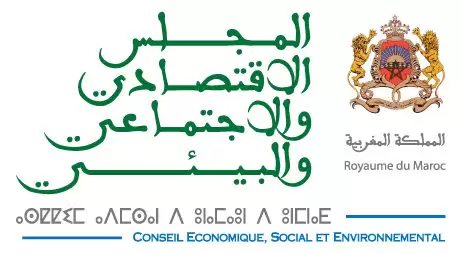
L’avis du CESE intitulé : « les fake news, de la désinformation à l’accès à une information avérée et disponible », élaboré dans le cadre d’une auto-saisine, traite de la problématique des fake news (fausses informations) qui prennent une ampleur grandissante à l’échelon mondial et national, exacerbée par l’usage, de plus en plus généralisé, des smartphones et des réseaux sociaux. Leur effet délétère peut impacter à la fois les individus, les organisations et la société en général.
Synthesis
In response to the escalating prevalence of false information, commonly known as fake news, at both national and global scales, the Economic Social and Environmental Council issued an opinion titled “Fake news: from disinformation to verified and accessible information”. The increasingly widespread use of smartphones and social media platforms has added to this phenomenon, and the damaging effects of fake news could have far-reaching consequences on individuals, corporations, and the broader society.
At its 141st Ordinary Session held on December 29th, 2022, the General Assembly of the Economic Social and Environmental Council (ESEC) granted unanimous approval to this Opinion developed through a participatory process that engaged all relevant stakeholders. This opinion reflects the outcome of in-depth discussions among all the Council’s constituent members and hearing sessions with relevant actors, beside the input received through ESEC’s participatory digital platform “Ouchariko”. Accordingly, the respondents emphasized the importance of providing accurate and fact-based information and expressed concern over the widespread dissemination of fake news.
The advent and proliferation of modern information and communication technologies amplified this longstanding issue. A 2018 study by the Massachusetts Institute of Technology (MIT) found that fake news spread six times faster than real news.
Disinformation or the intentional dissemination of fake news has become a prevalent means to generate profit, shape public opinion, or inflict harm upon businesses and even entire States. Such practices have the potential to undermine public order and disrupt the effective functioning of markets.
The limited availability of official and verified information greatly contributes to the proliferation of fake news, as most people lack the necessary resources and skills to verify the accuracy of information disseminated through diverse media channels. Furthermore, the occasional malevolent intervention of certain “influencers” serves to amplify the visibility of fake news.
Morocco suffers multiple dysfunctions and shortcomings that contribute to the spread of fake news. These include:
- Failure of certain public administration bodies to routinely disclose or update official information, despite the explicit provisions of Law No. 31-13 on the right of access to information;
- Insufficient human and material resources to empower different public media channels to effectively counter fake news dissemination;
- Other than a few initiatives, there is a notable deficiency in effective fact-checking platforms, which is critical to assuring thorough fact verification.
Recognizing the complex and multifaceted nature of fake news and disinformation, the ESEC puts forward a vision centered on adopting various tools and methods to ensure citizens’ access to verified information. The goal is to empower citizens to identify fake news, thereby curbing its spread.
To address the issue at hand, the following key actions are recommended:
– Ensure effective access to public information by compelling all authorities to publish official public documents on their respective websites within a 24-hour period following their adoption;
-Verify the accuracy of information through the following measures:
establish a publicly accessible digital fact-checking platform, building on the initiatives launched by select institutions (MAP, HACA, etc.);
-Provide financial support, such as through an independent universal service fund (USF), to fact-checking websites to ensure their effective functioning while preserving their impartiality and credibility;
-Develop a labeling system for fact-checking websites in the spirit of the “ethiq@” label set up for E-commerce companies;
-Promote initiatives aimed at assisting media professionals in identifying and reporting false information, thereby minimizing its spread;
Build up users and professionals’ capacity to identify fake news through the following measures:
- Regularly alert the public (ministerial department for communication, HACA, etc.) via various media channels to the dangers of fake news, targeting all social groups and categories (children, adolescents, seniors, illiterates, etc.);
- Promote media literacy and critical thinking skills among users at an early age;
- Sensitize information providers, whether professionals or non-professionals (bloggers, influencers, etc.) about their role and responsibility in combatting fake news, primarily through specific regular training programmes.
Boost scientific research and international cooperation through the following measures:
- Develop research and monitoring tools programmes to help monitor and combat the spread of fake news, in cooperation with the government, professionals, and universities.
- Engage more actively in the global efforts to monitor and combat fake news to keep pace with technological developments in this area.



